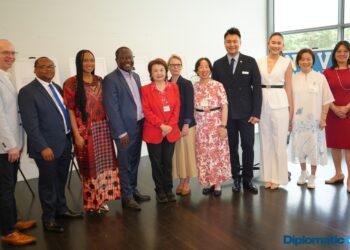By Fiona Freddy
The United Nations Development Agency (UNDP) has trained no fewer than 575 Internally Displaced Persons (IDPs) from the North-East on various technical skills in the Livelihood Support Project of the agency.
The UNDP Conflict Prevention and Peace Building Analyst, Mr Mathew Alao, made the disclosure in an interview with newsmen in Abuja on Wednesday.
Alao was speaking on the sidelines of the graduation ceremony for the IDPs trainees held in Kaduna State and Yola, the Adamawa State capital recently.
He said the trainees were drawn from Borno, Adamawa and Yobe States, ravaged by the Boko Haram insurgency.
He said that the beneficiaries were people, whose sources of livelihood were affected by the insurgency, noting that the people represented lots of hope for communities where they came from.
The officer said that 700 IDPs were shortlisted for the first phase of the scheme, aimed at achieving early economic recovery in the affected areas but that only 575 registered.
He said that 571 of the 575 were placed into three technical facilities in Kaduna, Maiduguri and Yola, out of which 258 had graduated.
Alao said that 79 of the trainees graduated from the Peugeot Automobile Nigeria (PAN) in Kaduna with different automotive skills, while 179 others graduated in Yola, specialising in GSM, aluminum and welding technologies.
The UNDP official said the last batch from the Ramat Polytechnic, Maiduguri and the PAN Learning Centre would graduate in November, 2017 and February 2018, respectively.
Alao expressed his optimism that after passing through the training process, the graduates would become peace advocates, responsible citizens, better business managers and potential leaders in their communities.
He expressed the UNDP’s readiness to assist the vulnerable, noting with concern that prolonged development deficit in the North-East had exposed millions of people to different kinds of problems.
According to Alao, “Even before Boko Haram began its insurgency, communities were already vulnerable and struggling to survive.
“The insurgency just worsened the situation, resulting in mass suffering among the people, especially women and the youth.
“At UNDP, we are working towards ensuring that necessary early recovery needs are met through vocational skills training, livelihood support and rehabilitation of public infrastructure.
“These efforts are providing catalytic ingredients for communities to thrive again for individuals to be able to fend for themselves again and for development to return to the region.”
He said the UNDP remained committed to supporting the government in establishing standard technical vocational training facilities which would be useful in providing skills to women and youths.








